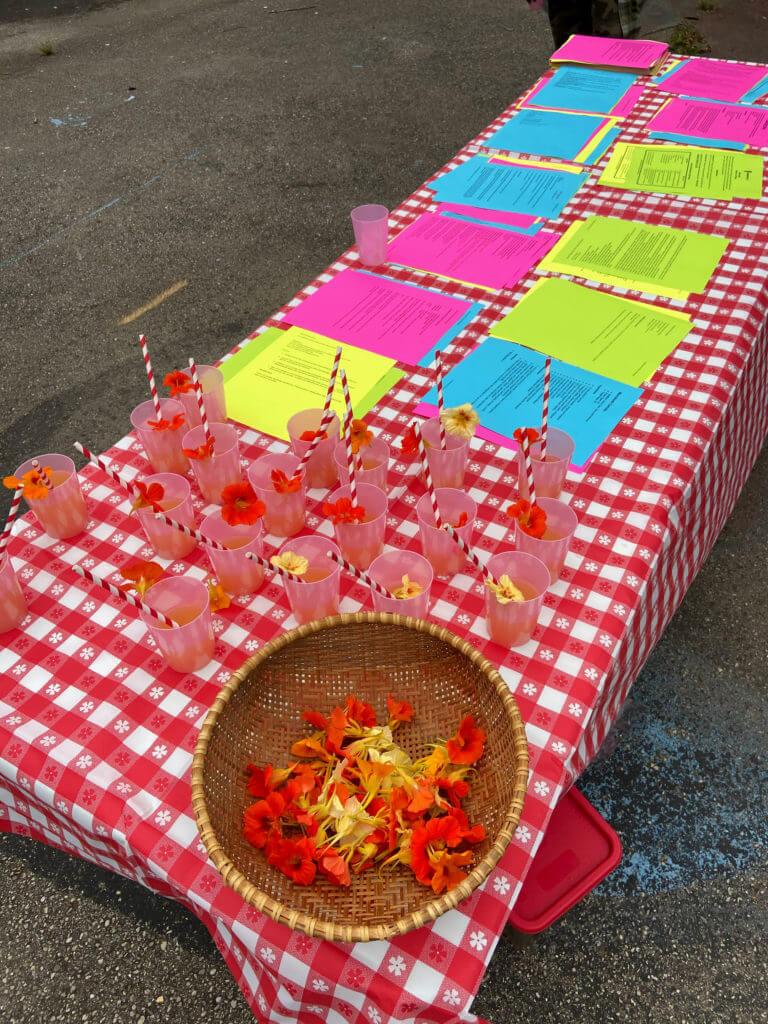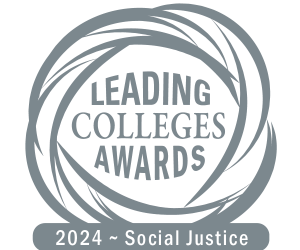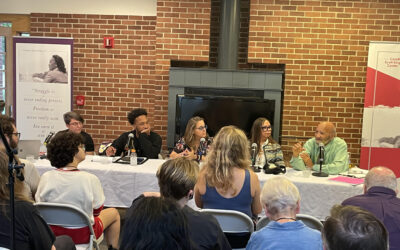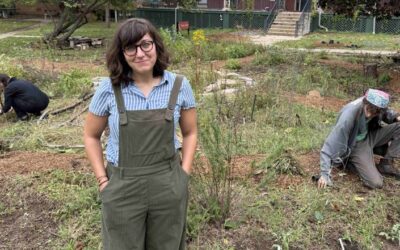On Tuesday, February 25, 2020—week eight of winter term—students, faculty, and staff gathered in McGregor 113 for our usual Community Meeting. This time, however, a special event was happening: the first Community Manager Candidates Forum first since 2007 where we had the opportunity to view candidate presentations and ask questions.
For decades, the Community Manager position (commonly known by the acronym CM in typical Antiochian fashion) played an important role in the structure of Antioch’s time-honored system of Community Governance. And now, it was finally poised to be reinstated at the newly independent Antioch College.
One day prior to the Community Meeting, Noah Greer ’21—who had served as ComCil Co-Chair and was now in the interim role of Community Facilitator—sent out an email to the entire institution with a helpful guide to properly interviewing job candidates, including what could and could not be asked.
The meeting went as planned, and after our usual expressions of gratitude, announcements, and updates, we welcomed the CM candidates to the front to introduce themselves and talk about how they would carry out tasks in the role of CM. All was calm and non-contentious. Then the question round began.
It quickly became clear that Noah’s guide was taken into great consideration as the questions asked during the CM Candidates Forum were challenging and tenacious, and built tensions in the room, which felt distinctly Antiochian for a Q&A session!
After the lively Q&A session, the choice of CM was put to a community vote. Coco Gagnet ’18 was elected the first CM in more than a decade.

Coco Gagnet ’18, Community Manager
Coco has hit the ground running and is already one month into her new position. Here is a short recap of her first few weeks as Community Manager in her own words:
September 11, 2020
Today I noticed how many leaves there are on the ground. The breeze is different. This morning outside the ledge of the Olive Kettering Library, during COVID times, this is the only common space on campus. I have been plugging away at emails, enjoyed the morning, including seeing sleepy-eyed students and a windswept Kevin Mulhall (Library Director) arriving on his bicycle. I met with Kat Christin on the Farm to talk herbs, interviewed students for Antioch Works positions, worked with nomination forms for ComCil and College Council with Michael Casselli ’87, returned to the Farm to harvest herbs, and phone chatted with Chris Chavers ’22 who is on Co-op in the Bay Area.
A day in the life of a Community Manager. What does it amount to?
For weeks I have been planning a Welcome Back event: We will write fall “Intention letters,” build “Happiness boxes,” and drink lemonade (in a safe fashion). I’m most excited about lemonade. Done right, it is an incredible balance of sweet, tart, and salt. I imagine taking a sip, with another Antiochian, someone I don’t really know. I imagine that for a millisecond of a moment, we’re so wholly focused on how good it is, that we forget ourselves. We feel together.
Or is this a fantasy?
As Community Manager, I am plugging away, I am listening. Trying to hear what the Community wants to be in the here and now. Learning to be together is not static, and never fully determined.
Always a fantasy, sometimes realized when you’re drinking lemonade together (safely).
Since the reopening of the College, many have advocated for the return of the CM position, including President Tom Manley. Finally, Coco Gagnet ’18 has arrived to fill the role and we could not be happier. We sent some questions to Coco to get to know her better; here are her replies.
What did you do after graduating from Antioch in 2018?
“After graduation, I spent the summer working on a farm in Hotchkiss, CO. From there, I moved back to Ohio and worked as a baker for a while. During that time, I was able to build and launch a website for my experiential philosophy framework Come Again (apologies, the site has not been updated for a bit). In August of 2019, I moved to Troy, NY, to work on a farm, and in the winter I moved an hour south to Hudson, where I was working in the kitchen at a queer seafood restaurant, Lil’ Debs Oasis. I moved back to Ohio at the beginning of the pandemic, and now I’m back at Antioch.”

Coco’s lemonade stand featuring nasturtiums from the Farm
What is your definition of community?
“This question is really hard for me. In some ways, I think there’s some tension with using the word ‘community.’ I feel very aware of the ways it’s been commodified by neoliberal capitalism. I also think that the idea of community can be associated with a very particular structure of relations, or belonging, but that can be too deterministic. I’ve often heard folks at Antioch say ‘we don’t have community.’ I don’t think community is something you can ‘have,’ it’s not an object, it’s many practices. Sometimes we mistake The Institution for The Community. Antioch is an institution, a place, an idea, a group of people gathered. Practicing community has to be parsed out from these overlaps.
I think about the philosophy of Dr. King and the ‘Beloved Community.’ A utopian vision grounded in agape, a coming-together that values radical hospitality, love, justice, and all life sharing in the abundance of Earth. Ultimately, I think of community as the word we use to describe ‘being together,’ or more closely ‘figuring out how to be together.’ The kind of community practice I’m interested in is necessarily utopian, a process full of hope and risk and resilience, all in the service of taking care of one another and the Earth.”
What made you choose to apply to the Community Manager position, and why are you interested in working for Antioch?
“When I was in my fourth year at Antioch, I was a part of a governance restructuring body, ComCil B. The re-establishment of the Community Manager position was something I strongly advocated for in that group. It wasn’t necessarily a thought that came out of the historical precedent, but from witnessing the gaps in the functioning of the Antioch Community, and seeing the Community Manager as a person who could potentially bridge some of those gaps. I think CM is a unique position; I like that there’s so much space to shape the role. I like that there’s a lot of breadth. I’m interested in working for Antioch because it is the site of so many pivotal relationships, and I really work best when I have an emotional connection to what I’m doing (for better or worse). I think there’s an interesting tension in Antioch being a place of incredible nostalgia (for some), while also being a place of reinvention and movement. I sort of feel an alignment with that, an interest in cultivating something shared, and also a love of things being shaken out in movement; in giving ourselves permission to change.”
How do you deal with difficult people and arguments in your community?
“I think I came into the world highly opinionated, and without much hesitance in expressing those opinions. However, time has really tempered the way I communicate, and cultivated an interest in learning how to listen deeply. I think how I approach difficult situations and arguments is always going to be mitigated by the nature of the disagreement, how power maps onto the situation, and what action is in the service of being responsive and just. That being said, I’m not someone who shies away from complexity, and I think that’s what attracts me to relational work—particularly relational work in the context of community. I’m very interested in learning what motivates people, what kind of communication and understanding they desire, how they imagine themselves in the world, what they feel to be right and wrong, how all of this is shaped by their experiences, how they’re in conversation with themselves and their environment—and conflict is an incredibly valuable source of information.”



